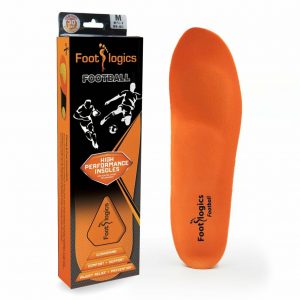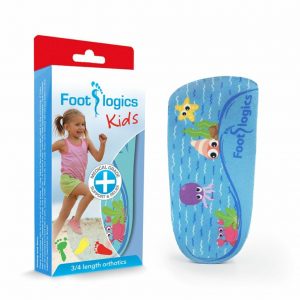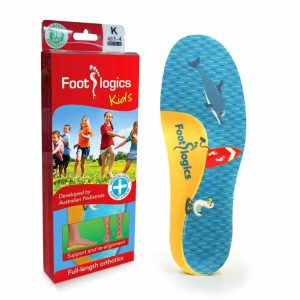Orthotics For Achilles Tendonitis (Tendinitis)
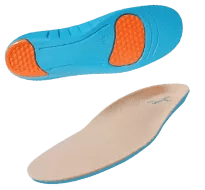
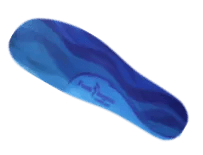
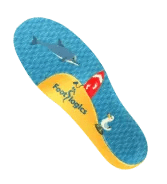
Recommended inserts for Achilles Tendonitis
What is Achilles Tendonitis?
Connecting your calf muscles to your heel bone, the Achilles Tendon is the longest tendon in the body. When your calf muscles contract, they pull on the Achilles Tendon, enabling you to point your foot and rise up onto your toes.
Latin for “inflammation of the Achilles Tendon”, Achilles Tendonitis is a foot condition that causes pain just above the back of the heel. During periods of inflammation, the Achilles Tendon may be tender to touch and noticeably thicker than usual. Walking, particularly when you push off your toes, is quite painful.
Orthotics for Achilles Tendonitis (Tendinitis)
Footlogics is proud to be a trusted and respected name among customers in need of orthotics for Achilles Tendonitis.
We have more than 15 years of experience behind us, and are experts in the supply and manufacture of superior orthotics and insoles for added comfort, everyday use, and sporting activities.
What Causes Achilles Tendonitis?
Irritation and inflammation occur as a result of a persistently strained Achilles Tendon, and in severe cases, this can even lead to a rupture of the tendon. Tight calf muscles may also play a role in the condition, which is called Tendinopathy. Chronic overuse may also contribute to degeneration and a thickening of the tendon. Although this is most commonly seen in runners, our tendons can also degenerate as a result of the natural process of aging. Degeneration refers to the wear and tear that takes place over time, eventually leading to weakness in the fibres of the tendon.
The Most Common Cause
Over-pronation of the feet is actually the most common cause of Achilles Tendonitis. As your feet roll inwards, your lower leg is also forced to rotate, placing a large amount of pressure on the calf muscles. Your calf muscles are connected to the Achilles Tendon and the Achilles Tendon is the “weakest link in the chain”. Over-pronation causes the Achilles Tendon to over stretch, resulting in irritation and inflammation.
Achilles Tendonitis - Causes
When there is persistent strain or stress on the Achilles tendons it results in irritation and eventually inflammation. Some severe cases have been reported where the massive strain caused the tendon to rupture! Chronic overuse of this tendon is common in runners and is a frequent cause for changes in it. This leads to thickening and degeneration of the tendon. Also tightness in your calf muscles contributes heavily to Achilles Tendonitis also called Tendinopathy. Our tendons tend to degenerate with old age and this wear and tear over time leads to weakness in the fibers of the tendon.
However, over-pronation has been found to be the most common cause of this condition. Excessive inward foot rolls cause our lower leg to rotate internally. This puts a shearing force on our calf muscles which are connected to the Achilles tendon. Now this is where the Achilles tendon gets over-stretched, which results in inflammation.
The orthotics for Achilles Tendonitis from Footlogics work to ease these symptoms, allowing the user to move freely with reduced pain and discomfort.
Typical activities that may result In Achilles Tendonitis:
- Running
- Gymnastics
- Tennis
- Dance
- Baseball
- Volleyball
- Softball
- Football
- Basketball
Typical Symptoms of Achilles Tendonitis
- Pain above your heel
- Instant and severe pain in case of ruptures
- Tenderness
- Swelling
- Stiffness
- Snapping or popping noise in the joint when it happens
Achilles Tendonitis Treatments
Stretching: gently stretch your Achilles Tendons and calf muscles before participating in any physical activities such as running or other sports. Slow and gentle stretching is one of the best preventative measures against Achilles Tendonitis or Tendinopathy. You should feel a noticeable pull, but no pain.
listen to your body and treat Achilles Tendonitis with care to ensure that the injury does not become a chronic condition.
You can reduce inflammation by:
- 20 minutes spent placing ice packs on the injured area (helpful in acute stages)
- Using anti-inflammatory medication (preferably non-steroidal)
- using a boot with a tight ankle to restrict foot movement
This allows the tendon time to heal and is typically advised in serious situations (used for about 8 weeks) - trying injections of steroids that are slowly absorbed.
These are especially beneficial in peri-tendinitis situations.
Before beginning this process, get the advice of a qualified medical professional.
Achilles Tendonitis – Treatment
This treatment works to reduce stress on the tendon and also reduce any inflammation. One can relieve the stress or strain by
- Avoiding activities that aggravate the problem further, such as running or sprinting
- Putting shoe inserts (orthotics) in your shoes. These help take pressure off your tendon and help them heal faster. In case you have a flat or hyperpronated foot, your physician or podiatrist may suggest long-term use of orthoses.
The Footlogics staff can assist you in finding the right orthotic for Achilles Tendonitis to suit your needs, and provide you with comprehensive and lasting support.
One can reduce inflammation by
- Applying icepacks on the affected area for 20 minutes (helpful in acute stages)
- Taking anti-inflammatory drugs (preferably non-steroidal)
- Using restrictive ankle-boot to minimize feet movement. This gives the tendon time to heal and is usually recommended in severe cases (used for about 8 weeks)
- Trying slowly absorbed steroid injections. These are particularly helpful in cases of peri-tendinitis. Consult a specialist doctor before going forward with this procedure.
Specific exercises that gently stretch your calf muscles are also effective in some cases. These show results faster once you have coped up with the acute stage of inflammation. Your doctor or physiotherapist will suggest certain exercises while you are recovering. Remember, recovery will often be slow and will largely depend on the severity of your condition. Make sure to follow all the instructions given by your doctor for the treatment to be effective.
Treatment with Orthotic Insoles
Wear orthotics. Footlogics orthotics help prevent your feet from over-pronating as you walk. By wearing orthotics, you correct the positioning of the feet thereby reducing the strain on the Achilles’ and giving your tendons a chance to heal. Orthotics also prevent the situation from worsening, helping to avoid rupture.
For athletic footwear, Footlogics Sports is highly suggested, and Footlogics Plantar Fasciitis is the best option.
Visit a physiotherapist or (sports) podiatrist if the issue continues to prevent the condition from getting worse.
Along with using orthotic insoles, you can stretch your calf muscles and Achilles tendons gently to prevent Achilles Tendonitis or Tendinopathy.
Every time before engaging in any physical exercise, do this.
Always make it a point to execute stretching exercises slowly, to ease into the stretch as opposed to assuming it abruptly, and only when you feel a pull rather than pain.
To find out more about the benefits of our popular orthotics for Achilles tendonitis, get in touch with us right away.
Footlogics Sports comes highly recommended for sports shoes and Footlogics Plantar Fasciitis is ideal for regular footwear. If you see the problem persisting, visit a physiotherapist or (sports) podiatrist before the condition gets out of hand. What you can do to prevent Achilles Tendonitis or Tendinopathy in addition to using orthotic insoles, is gently stretch your Achilles tendons and calf muscles. Do this every time before taking part in any physical activity. Always make it a point to perform stretching exercises at a slow pace and gently move into the stretch rather than abruptly getting in position and only to a point where you feel a pull, not pain.
Contact us today to learn more about the advantages of our in-demand orthotics for Achilles Tendonitis.
Foot Ankle Orthotics
When it comes to leading services, assistance, and treatment options related to foot or ankle orthotics, make sure you contact the experts here at Footlogics.
Achilles Tendonitis Flip Flops
Your feet’s general health can be significantly impacted by wearing shoes that are of low quality or are improperly fitted.
Extensor tendonitis, a condition caused by doing this repeatedly over time, can affect the tendons in the ankle that attach to the foot.
Extensor tendonitis sufferers at Footlogics have access to a variety of treatment alternatives, including flip flops that support the foot and the user’s natural gait.

